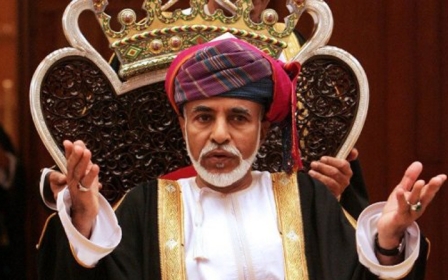Oman sees $6.47bn budget deficit amid oil slump

Non-OPEC member Oman on Thursday announced a budget deficit for 2015 of $6.47 billion, reflecting the effect on Gulf producers of plummeting crude oil prices.
The budget includes expenditure of $36.5 billion, up 4.5 percent from 2014, and revenue of $30.03 billion, down 1.0 percent, the official ONA news agency cited the finance ministry as saying.
The projected deficit will represent 21 percent of public revenue and 8.0 percent of the sultanate's GDP.
Oman is a small producer of crude, at about one million barrels per day.
Current expenditure accounts for the lion's share at 68 percent of public spending, far ahead of investments (23 percent), the ministry said.
Because of the falling price of oil -- which brings in 79 percent of Muscat's revenues -- the government had to "take preventative measures... to preserve financial and economic stability", the ministry's statement said.
However, these "would have no impact" on the standard of living or on social services and employment, it added.
The statement said subsidies on consumer goods and social services in the new budget would account for 8.0 percent of public expenditure in 2015.
With a need to diversify the economy Muscat has looked to position itself as a tourist hub.
From desert camping to luxury hotels, turtle-watching, and even the Arabian Peninsula's first Italian-style opera house, Oman is hoping to carve out a place on the global tourist track.
"Oman reflects the true Arabian history and culture," Amina al-Balushi, an assistant director with the tourism ministry, told AFP.
"We really need to capitalise on this," she said, adding that the ministry is preparing a 25-year tourism strategy to be unveiled this year.
"The government of course is aiming to diversify the economy through developing tourism as an important sector.”
Western tourists told AFP of how they have made repeat visits to Oman.
"I can't get enough," said Marc Lost, a 46-year-old Swiss national. "The weather is always good. People are very nice."
Oman attracted roughly 2.1 million visitors in 2013, up about 50 percent over the previous two years, according to the tourism ministry.
More than 37 percent of visitors last year came from Gulf countries, although Oman is also attracting a growing number of tourists from Britain, Germany, the United States and other Western nations, tourism ministry data show.
The country also invested more than $660mn last year in new hotels and other tourism assets, according to the World Travel and Tourism Council, an industry body.
Still, tourism's direct contribution to gross domestic product (GDP) reached only three percent, or about $2.5 billion, last year.
This "looks like beans," said Fabio Scacciavillani, chief economist at the Oman Investment Fund, the country's sovereign wealth vehicle.
"These figures do not portray a thriving situation," Scacciavillani told a tourism conference in Muscat.
"That's strange, because Oman can probably live off tourism. If Oman didn't have oil, it would most likely be an economy based on tourism."
Middle East Eye propose une couverture et une analyse indépendantes et incomparables du Moyen-Orient, de l’Afrique du Nord et d’autres régions du monde. Pour en savoir plus sur la reprise de ce contenu et les frais qui s’appliquent, veuillez remplir ce formulaire [en anglais]. Pour en savoir plus sur MEE, cliquez ici [en anglais].




